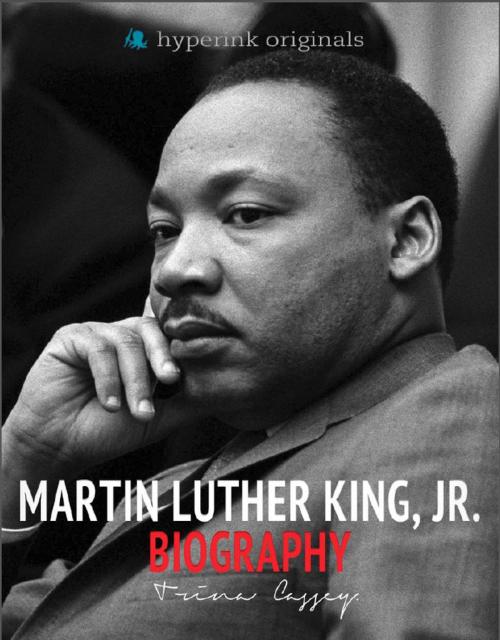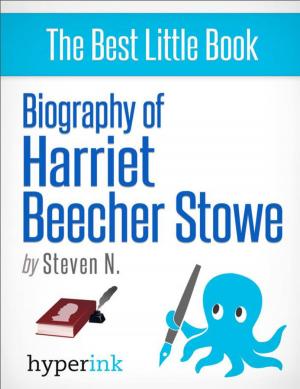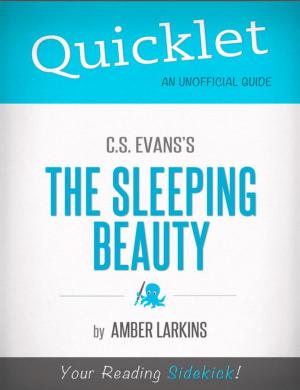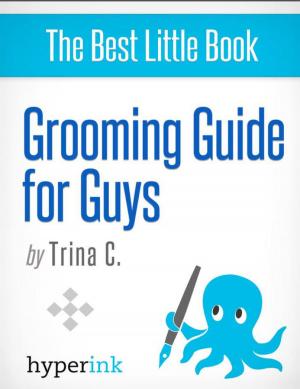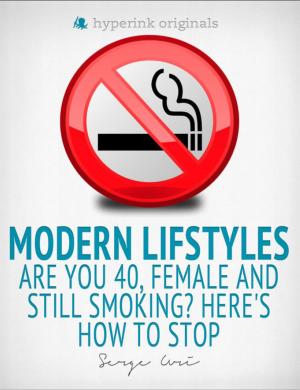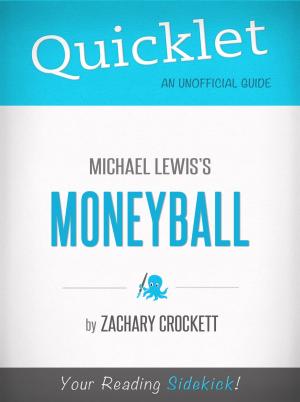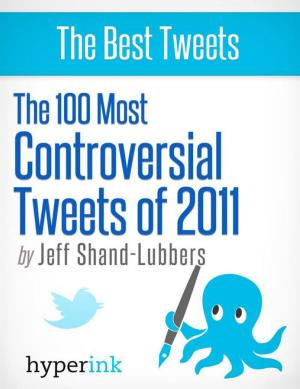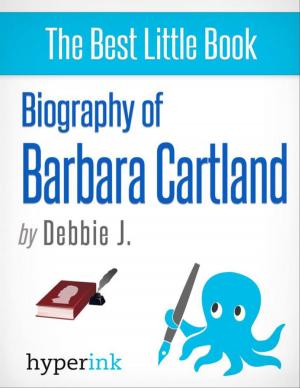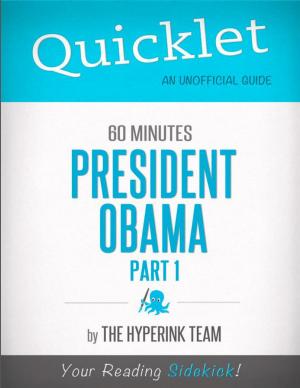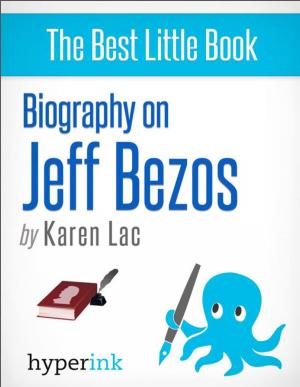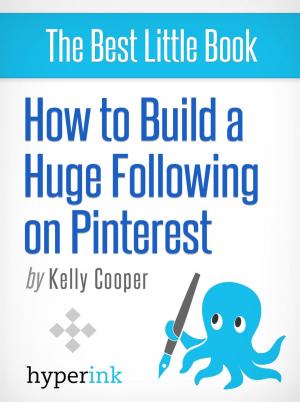| Author: | Trina Collier | ISBN: | 9781614646556 |
| Publisher: | Hyperink | Publication: | July 30, 2012 |
| Imprint: | Hyperink | Language: | English |
| Author: | Trina Collier |
| ISBN: | 9781614646556 |
| Publisher: | Hyperink |
| Publication: | July 30, 2012 |
| Imprint: | Hyperink |
| Language: | English |
ABOUT THE BOOK
The evening Martin Luther King, Jr. died, he asked his friend, musician Ben Bunch, to play “Take My Hand, Precious Lord.” It was a prophetic request by one of the world's greatest social reformers. King was born just months before the start of the Great Depression, and he spent his earliest years in Atlanta, Georgia. During his life, King saw first hand the rampant discrimination that coursed through Southern culture.
When Rosa Parks refused to give up her seat to a white man on a bus, it spurred Dr. King to action. It was in this moment that he realized he had to do everything in his power to help the nation's impoverished, disabled, and disenfranchised establish an equal footing in all aspects of life. His drive to attain equality for all American citizens, regardless of creed or race, has inspired activists the world over to adapt nonviolent forms of protest.
Prior to the MLK monument dedication ceremony in 2011, King's son, Martin Luther King, III, wrote a piece that appeared in the Washington Post. His father, he wrote, would have fought just as hard for women's and gay rights as he did for people of color, because he believed everyone had the right to enjoy basic freedoms:
“My father also supported human rights, freedom and self-determination for all people, including Latino agricultural workers, Native Americans, and the millions of impoverished white men and women who were treated as second-class citizens.
EXCERPT FROM THE BOOK
Finally, on May 10, the city of Birmingham agreed to lift its segregation laws and drop all charges against King and Abernathy. The June 23 Freedom Walk march on Detroit drew 125,000 people, and led up to Dr. King's I Have a Dream speech in Washington, D.C. just two months later. On August 28, King spoke before more than 250,000 people in front of the Lincoln Memorial. To this day, the I Have a Dream speech remains one of his most eloquent, impassioned and heartfelt speech. Nearly 50 years later, it remains one of the most well-known speeches in modern history, and rightfully takes its place as one of the greatest pieces of modern American oratory. His words stoked a fire in the hearts of Americans who sought equality; either for themselves or for their fellow citizens.
Among the throngs of supporters were established white religious leaders, young white men and women who believed in racial equality, and thousands of black men and women, many of whom had traveled great distances to march on Washington. This reality was not lost on Dr. King, who said:
"I am not unmindful that some of you have come here out of great trials and tribulations. Some of you have come fresh from narrow jail cells. And some of you have come from areas where your quest -- quest for freedom left you battered by the storms of persecution and staggered by the winds of police brutality. You have been the veterans of creative suffering. Continue to work with the faith that unearned suffering is redemptive. Go back to Mississippi, go back to Alabama, go back to South Carolina, go back to Georgia, go back to Louisiana, go back to the slums and ghettos of our northern cities, knowing that somehow this situation can and will be changed."
As Dr. King's influence among the movement grew, so did the uneasiness and anger among those resistant to change. In Birmingham, Alabama, a bomb went off at Sixteenth Street Baptist Church, killing four young girls. Instead of sending federal authorities to investigate the crime, the FBI inexplicably wire tapped Dr. King's home phone. The FBI believed King and his cohorts were communists, so instead of pursuing justice for the four victims, they treated King as an enemy of the state. It would be another 40 years before the culprits of the bombing were brought to justice...
Buy the book to continue reading!
Follow @hyperink on Twitter!
Visit us at www.facebook.com/hyperink!
ABOUT THE BOOK
The evening Martin Luther King, Jr. died, he asked his friend, musician Ben Bunch, to play “Take My Hand, Precious Lord.” It was a prophetic request by one of the world's greatest social reformers. King was born just months before the start of the Great Depression, and he spent his earliest years in Atlanta, Georgia. During his life, King saw first hand the rampant discrimination that coursed through Southern culture.
When Rosa Parks refused to give up her seat to a white man on a bus, it spurred Dr. King to action. It was in this moment that he realized he had to do everything in his power to help the nation's impoverished, disabled, and disenfranchised establish an equal footing in all aspects of life. His drive to attain equality for all American citizens, regardless of creed or race, has inspired activists the world over to adapt nonviolent forms of protest.
Prior to the MLK monument dedication ceremony in 2011, King's son, Martin Luther King, III, wrote a piece that appeared in the Washington Post. His father, he wrote, would have fought just as hard for women's and gay rights as he did for people of color, because he believed everyone had the right to enjoy basic freedoms:
“My father also supported human rights, freedom and self-determination for all people, including Latino agricultural workers, Native Americans, and the millions of impoverished white men and women who were treated as second-class citizens.
EXCERPT FROM THE BOOK
Finally, on May 10, the city of Birmingham agreed to lift its segregation laws and drop all charges against King and Abernathy. The June 23 Freedom Walk march on Detroit drew 125,000 people, and led up to Dr. King's I Have a Dream speech in Washington, D.C. just two months later. On August 28, King spoke before more than 250,000 people in front of the Lincoln Memorial. To this day, the I Have a Dream speech remains one of his most eloquent, impassioned and heartfelt speech. Nearly 50 years later, it remains one of the most well-known speeches in modern history, and rightfully takes its place as one of the greatest pieces of modern American oratory. His words stoked a fire in the hearts of Americans who sought equality; either for themselves or for their fellow citizens.
Among the throngs of supporters were established white religious leaders, young white men and women who believed in racial equality, and thousands of black men and women, many of whom had traveled great distances to march on Washington. This reality was not lost on Dr. King, who said:
"I am not unmindful that some of you have come here out of great trials and tribulations. Some of you have come fresh from narrow jail cells. And some of you have come from areas where your quest -- quest for freedom left you battered by the storms of persecution and staggered by the winds of police brutality. You have been the veterans of creative suffering. Continue to work with the faith that unearned suffering is redemptive. Go back to Mississippi, go back to Alabama, go back to South Carolina, go back to Georgia, go back to Louisiana, go back to the slums and ghettos of our northern cities, knowing that somehow this situation can and will be changed."
As Dr. King's influence among the movement grew, so did the uneasiness and anger among those resistant to change. In Birmingham, Alabama, a bomb went off at Sixteenth Street Baptist Church, killing four young girls. Instead of sending federal authorities to investigate the crime, the FBI inexplicably wire tapped Dr. King's home phone. The FBI believed King and his cohorts were communists, so instead of pursuing justice for the four victims, they treated King as an enemy of the state. It would be another 40 years before the culprits of the bombing were brought to justice...
Buy the book to continue reading!
Follow @hyperink on Twitter!
Visit us at www.facebook.com/hyperink!
